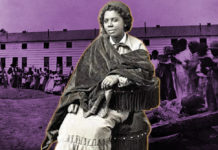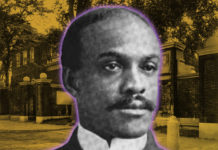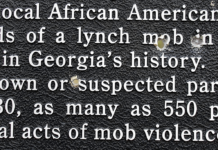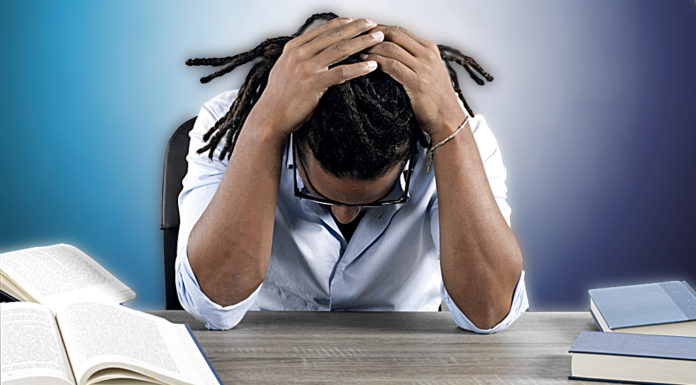The first time someone called me a “kike,” I was twelve years old.
I was on a family vacation in Florida, and the offender was an older white kid in a video arcade. Between his turns hugging the curves of a first-person motorcycle game, he informed me that he didn’t know much about Jews … other than that they all have horns, and that they killed Jesus.
Two larger, less-ignorant teens – brothers from North Dakota – restrained me from punching him in the face. After they dragged me out of the arcade, the younger of the two told me that, when something uncool happens in his high school, instead of saying “That sucks” they say, “That’s Jewish.”
After a couple of hours of intense conversation, he agreed to curtail the use of this expression.
I was shocked by the ignorance I encountered that night. Anti-semitism was rare in my home community. I grew up in a part of New Jersey where synagogues outnumber gun stores. In my diverse bubble, everyone knew at least a few Jews, and if folks harbored prejudices, they knew better than to share them.
I did, however, see anti-black racism as a child. A lot. On television and in the news. At the elementary school lunch table, where a ten-year-old white kid explained to me that Rodney King deserved to be beaten, because he was black. In the high school gym, where I watched my gym teacher abuse a classmate, while calling him the n-word. This contrast between observing blatant racism, while experiencing negligible anti-semitism, plays a huge role in how I understand prejudice. Growing up Jewish meant being different from 90% of the people in my community, but my kind cultural difference seemed to come with more privilege than detriment.
What a difference a generation can make. To my grandparents, that privilege was a source of both pride and annoyance. Pride, because their successful navigation of the shoals of the American dream meant that I could avail myself of the advantages of American culture. Annoyance, because that same privilege meant that my generation of Jewish kids – just two removed from the mass extermination, by a European superpower, of most of our cousins – experienced our cultural differences with none of the systematic disadvantages that Jews had faced, in the rest of the world, for most of our people’s history.
How did his happen?
Because, at some point, between my great-grandparents coming through Ellis Island and me being born, most American Jews became “white.”
Not European. Not Anglo-American. But white. That unique American racial signifier, which only exists in contrast to blackness.
The Jews of America weren’t always “white.” When my Jewish great-grandparents arrived in this country, they were unable to access home loans. Real estate agents and mortgage lenders conspired to keep them out of white neighborhoods. There were quotas for Jews in educational institutions, and some of the titans of American industry were vicious anti-semites.
Those systemic restrictions are gone now. There are no places where Jews are barred from voting, living, or going to school. There is no disproportionate representation of Jews in prisons. Jews cannot expect to be racially profiled by police, and they are not systematically underrepresented in positions of political power. In fact, to use a crude measure, individuals of the Jewish faith constitute about 5% of all Congressional seats, while Jews are only about 1.4% of the entire population of the United States. If anything, the structural scales have tilted in the other direction.
To put it plainly: anti-semitism in America is nothing like anti-black racism. At all. It’s not even close.
Institutional disadvantage and personal prejudice, however, are not synonymous. Anti-semitic prejudice exists today, and one could argue that those prejudices are exacerbated by the Jewish community’s newfound cultural privilege. Historical anti-semitic tropes about money, power, and influence, which defined European anti-semitism before World War II, have been repackaged in an American context.
I spend every Passover season ruminating about these intersections of anti-semitism and anti-black racism. I’m choosing to do this year’s meditation in public, given that America’s progressive political coalition is having a serious discussion about anti-semitism.
The reason for that discussion is both unfortunate and predictable: Louis Farrakhan’s public statements about Jews. If you’ve been around long enough, you’ve seen this situation play out before. I saw it for the first time on my birthday in 1995, which also happened to be the day of the Million Man March. It has replayed over and over, at mostly inconvenient times, like an infomercial for a combustible product that everyone is afraid to touch. The show elicits kabuki theater, during which people in the Jewish community claim to be shocked that Louis Farrakhan, a prominent leader within the Nation of Islam, is an unrepentant anti-semite. The feigned shock comes with demands, namely that people who have had any associations with the Nation of Islam renounce both Farrakhan as a person, and anti-semitism as an ideology.
To be perfectly honest, I don’t mind that last part. Louis Farrakhan is anti-semitic, not to mention homophobic. Visible, public leaders ought to be held accountable for their prejudices. His prominent followers also should be able to explain their personal views on these topics, as humans deserve the opportunity to think and speak for themselves.
All of that said, it’s hard to escape the fact that many American Jews only pay attention to one of the country’s largest communities of black Muslims when demanding their apologies. We are quick to demand recompense when a prominent black leader evinces ignorance of our faith, while many of us remain willfully ignorant of the rampant anti-black racism that plagues America today. Even if Farrakhan’s abhorrent views act as a barrier to empathy with the broader community he represents, we must wrestle with the social conditions that the Nation of Islam seeks to address, including the painful effects of mass incarceration, housing segregation, and police violence. I know many black Muslims who fight for justice, while also combatting anti-semitism in their own communities, and I stand in solidarity with them.
In that spirit, this Passover season, I hope that Jewish Americans will spend more time fighting the racism within our own communities than we spend demanding absolution from others. Fighting prejudice starts at home, in the family, and in one’s own religious community. There are Jewish communities in America today that use the power of the state to suppress self-determination for black children and families. That’s textbook institutional racism. There are problematic events in both our history and present that need to be unpacked, and the lack of accountability for anti-black racism within our own community hampers our credibility when advocating for justice in broader coalitions.
At a more personal level, we know that racist beliefs fester within our own families. When we sit down for Seders this weekend, there will be people at our tables who harbor racial animus. Perhaps they will make glib comments about certain “ungrateful” NFL players, or “paid, uppity protestors.” Will we have the courage to challenge their beliefs, while modeling the power of forceful disagreement for the other people at the table? Will we have the wisdom to remark upon the irony of having to have this conversation against the backdrop of a holiday, which is dedicated to understanding the lasting impact that slavery has on an oppressed community, over the course of not just generations, but millenia? Or will we be cowardly, and let the remarks slide, unaddressed?
We should commit to choosing justice over negative peace at the Passover table. A good Seder is a raucous, boozy celebration of a centuries old revolutionary story. The oppressed overthrow the oppressor, while getting a glimpse of the ephemeral promised land in the process.
While Jewish people have escaped the shackles of institutional discrimination in America, we are nowhere near the promised land. The challenge of realizing the greatest aspirations of the Passover story is that the promised land cannot be a place where the formerly oppressed take comfort in their newfound privilege, while ignoring the suffering of others. This is not justice, but merely revenge.
While we as Jewish people have done much to secure our own safe place in American culture, we have not done enough to provide that same safety to our black and brown brothers and sisters. The promised land must be a place where justice and equity flourish for all people, with an understanding of our shared humanity across lines of racial and religious difference.
That version of the promised land is worth fighting for, but it feels dangerously out of reach right now. I can all still see glimpses of it, though, through the fog of our socially constructed differences. During this Passover season, I hope you can too.











Extremely well thought out piece. It is an honor to know you.